News
This page includes our lab news in which Mangul Lab was featured.

Serghei Mangul, PhD, assistant professor of clinical pharmacy at the USC Alfred E. Mann School of Pharmacy and Pharmaceutical Sciences, has been awarded a Fulbright U.S. Scholar Program award for 2024-2025.Serghei Mangul, PhD, assistant professor of clinical pharmacy at the USC Alfred E. Mann School of Pharmacy and Pharmaceutical Sciences, has been awarded a Fulbright U.S. Scholar Program award for 2024-2025.
21 Aug 2024

Yu Ning Huang has been appointed as a Mentored Teaching Fellow for the CXPT 501 class in Biomedical Data Sciences.
14 Aug 2024
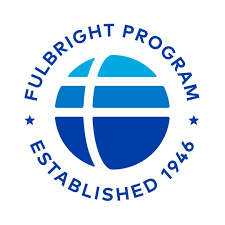
Serghei Mangul’s Fulbright award has been featured by USC News, highlighting his contributions to developing a bioinformatics educational program in Moldova.
12 Aug 2024
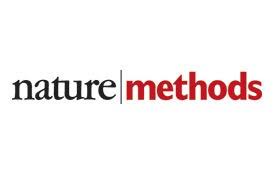
Amid the brutality of war around them, some Ukrainian scientists find calm in bioinformatics.
05 Aug 2024

Nature Methods interviews Serghei Mangul about grant writing, discussing his experiences and tips for successful grant applications.
08 Jun 2024

Serghei Mangul, PhD has received a USC and Indian Institute of Science (USC-IISc) Collaborative Network Award for $5,000 to collaborate with Prof. Debnath Pal from Indian Institute of Science on the project ‘Developing robust and scalable bioinformatics tools and databases for RNA viral discovery and characterization from metagenomics data.’
03 Jun 2024

Serghei Mangul, PhD, has received the Zumberge Preliminary Studies Large Program Award, a $100,000 grant, for the project “Developing Reliable and Scalable Methods for Deep Immune Phenotyping in Public Transcriptomics Databases Across Diverse Populations.
28 May 2024

Serghei Mangul, a USC professor, has received a Fulbright award to develop a bioinformatics educational program in Moldova, aiming to bridge the knowledge gap and promote global collaboration in metagenomics research.
15 May 2024
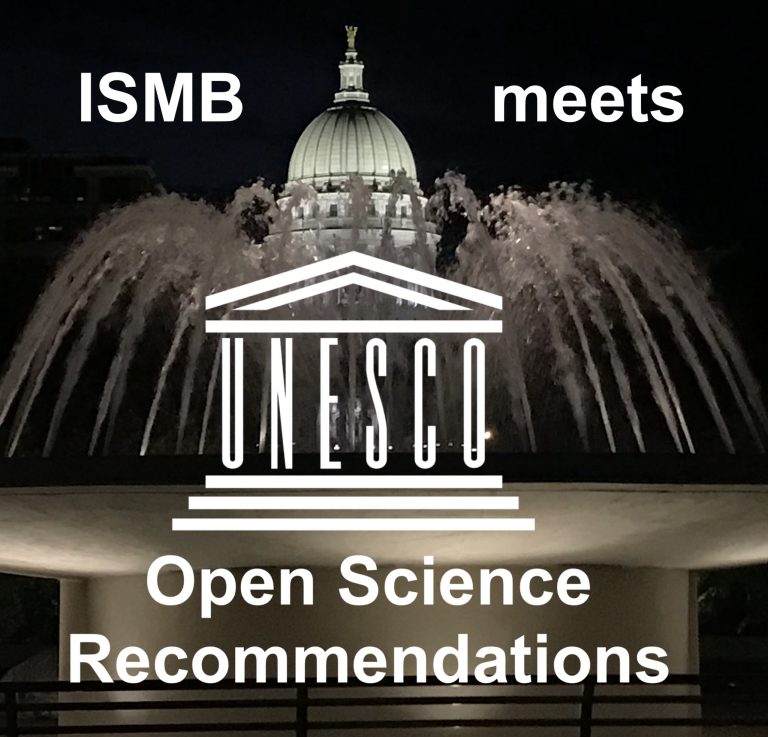
Our talk was highlighted in the blog post of the Journal, GigaScience. The first year PhD student, Yu Ning, was a speaker at the 2022 ISMB conference held in Madison, where he presented in the CAMDA (Critical Assessment of Mass Data Analysis) track. During the conference, he presented two talks, Data availability of open T-cell receptor repertoire data, a systematic assessment and Assessing the completeness of immunogenetics databases across diverse populations. The talk for the assessment of the raw data availability in immunogenetics studies introduced the published research in June 2022 examining the raw data availability in the immunogenetics studies. He also presented the ongoing immunogenetics projects analyzing the completeness of the immunogenetics database (IMGT databased) representing diverse populations. The PI, Dr Serghei Mangul, presented one talk, The systematic assessment for the completeness of metadata information accompanying omics studies. His talk centered around the analysis of the completeness of metadata in biomedical research fields. The ISMB conference is a well-respected platform for scientists and researchers in computational biology and your participation in this conference highlights your standing in the industry. The CAMDA track specifically focuses on the critical evaluation of large-scale data analysis. Our talk provided valuable insights into the current state of the field and paved the way for further research and discussions.
19 Jul 2022
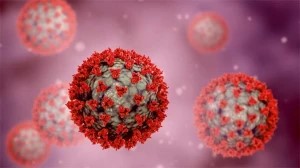
In their comment, Serghei Mangul and colleagues discuss how genomics and metagenomics methods have become essential public health tools. Once the virus was detected, scientists immediately set about identifying and characterizing the pathogen, enabled by access to reliable and accurate sequencing methods. Similarly, computational tools allowed phylogenetic analyses of the genetic fingerprint of the virus that traced its origin and evolution; by these methods, SARS-CoV-2 was found to have close ancestral ties with bat coronavirus species. Genomic and bioinformatic methods continue to be used across the globe to monitor the emergence of new SARS-CoV-2 variants and track transmission routes.
08 Apr 2022

In their comment regarding our work, ‘Another recent study affirms that online meetings can promote participant diversity by minimizing barriers to attendance. The authors analyzed the demographics of attendees at scientific conferences before and after the adoption of a virtual format. They observed a significant increase in attendees from underrepresented groups at the virtual events and suggest online platforms may be more inclusive by offering increased accessibility and programming flexibility compared to in-person convenings.’
24 Feb 2022
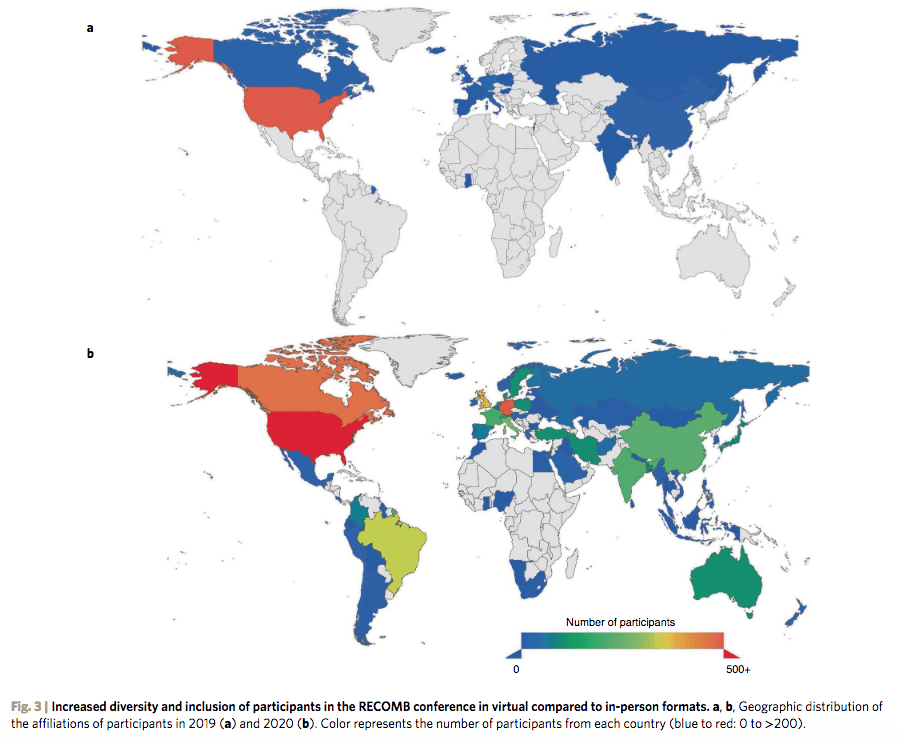
Our paper ‘Virtual meetings promise to eliminate geographical and administrative barriers and increase accessibility, diversity and inclusivity’ was highlighted in the USC Pharmacy news.
10 Jan 2022

USC School of Pharmacy scientists united researchers worldwide to promote inclusivity in immunology studies
09 Jun 2021
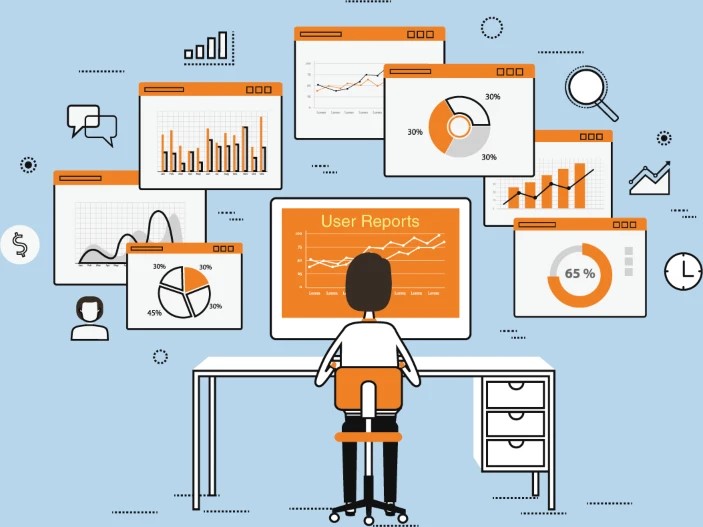
Bench pressing with genomics benchmarkers: Some -omics tools can be accurate, sensitive or efficient than others. Yet benchmarking is no tell-all
20 Feb 2020
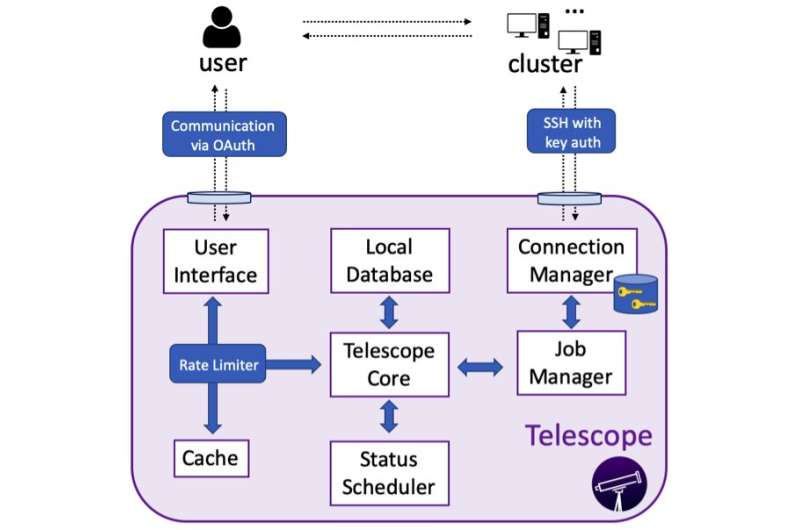
Tech Xplore reports on Telescope: a tool to manage bioinformatics analyses on mobile devices
18 Oct 2019
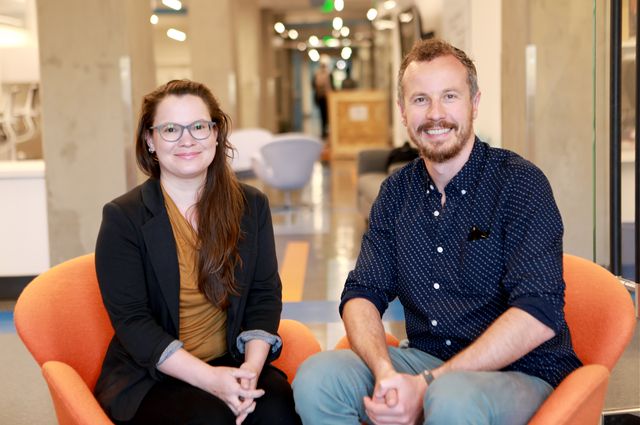
UCLA Newsroom: Team proposes plan to use bioinformatics, open data to boost science in developing countries
18 Apr 2019